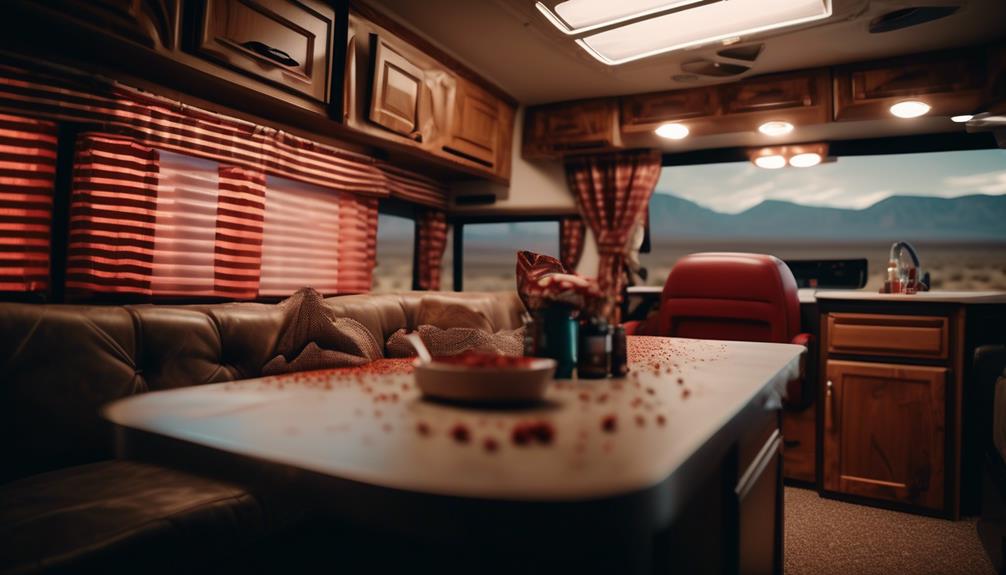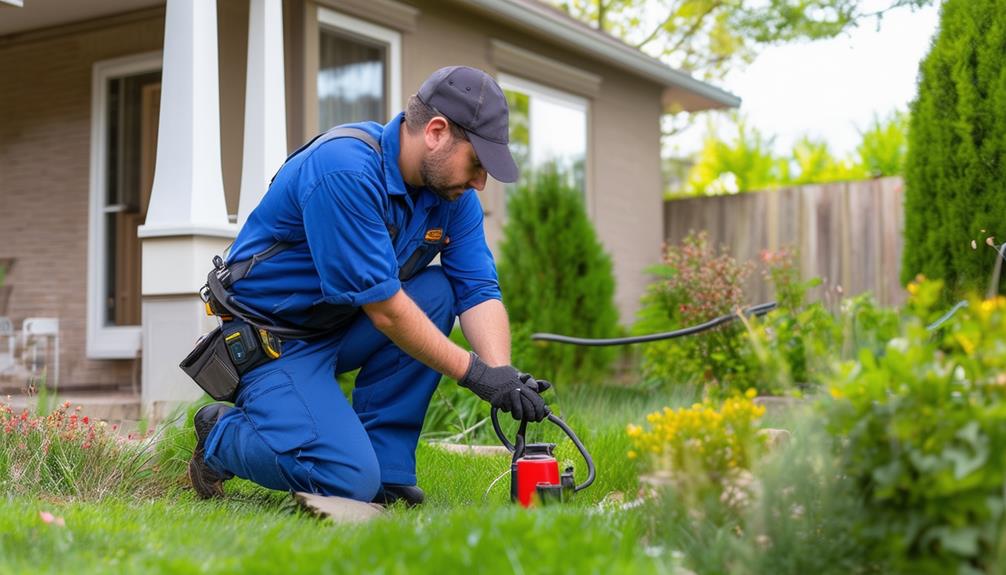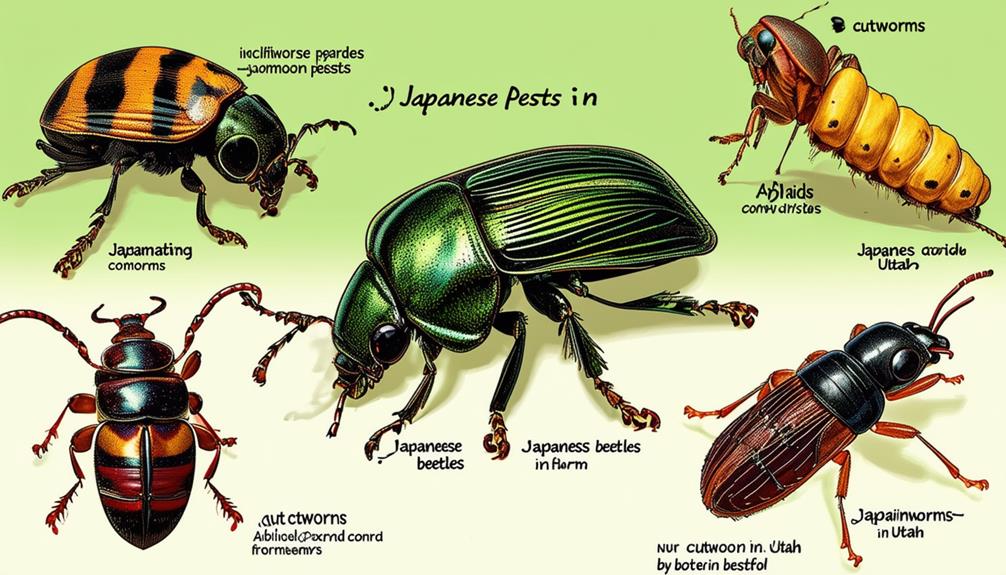Are you an RV owner in St. George, Utah? Worried about potential rodent infestations? Well, fear not! We have some expert tips and advice to help you prevent those pesky critters from making your RV their cozy home.
From sealing all potential entry points to using rodent repellents and deterrents, we’ve got you covered.
But that’s not all! We’ll also share some secrets on proper food storage and how to regularly inspect and maintain your RV for any signs of infestation.
So, if you’re ready to protect your RV from unwanted guests, keep reading to discover these rodent control tips specifically tailored for St. George, Utah RV owners.
Key Takeaways
- Sealing potential entry points is crucial in preventing rodent infestations in RVs. Inspect and seal gaps around pipes, vents, windows, flooring, and walls.
- Keeping the RV clean and clutter-free is important to make it less attractive to rodents. Regularly clean, vacuum, and organize the interior and exterior of the RV.
- Proper food storage and security is essential in preventing rodents from being attracted to the RV. Use rodent-proof containers with tight-fitting lids and store food in well-sealed areas.
- Consider using natural repellents like peppermint oil or mothballs, as well as electronic devices like ultrasonic repellents or electromagnetic pest control to deter rodents. Regular inspection and maintenance are also necessary to identify and address potential infestation issues promptly.
Seal All Potential Entry Points
To effectively prevent rodents from entering your RV in St. George, Utah, it’s crucial to meticulously seal all potential entry points. Taking preventive measures by sealing gaps and cracks can save you from the hassle of dealing with a rodent infestation.
Start by inspecting the exterior of your RV for any openings that pests can squeeze through. Common entry points include gaps around pipes, vents, and windows. Use weather stripping or caulk to seal these gaps, ensuring a tight seal.
Additionally, check for any holes or gaps in the flooring or walls inside your RV. These should also be sealed to prevent rodents from finding their way in.
Keep Your RV Clean and Clutter-Free
Now, let’s shift our focus to the importance of keeping your RV clean and free of clutter to prevent rodent infestations in St. George, Utah.
Regular RV maintenance and pest prevention are essential to ensure a rodent-free environment. Start by regularly cleaning your RV, both inside and outside, to remove any food particles or debris that may attract rodents. Vacuum the floors, wipe down surfaces, and empty trash regularly.
Avoid leaving any food out, and store it in airtight containers. Additionally, keep your RV clutter-free by organizing and storing items properly. Rodents are attracted to cluttered spaces where they can hide and build nests.
Store Food Properly and Securely
Proper and secure food storage is crucial in preventing rodent infestations in your RV. To keep rodents away, it’s important to store your food in a way that makes it inaccessible and unappealing to them.
Use rodent-proof containers to store your food items. These containers should be made of sturdy material, with tight-fitting lids that can’t be easily chewed through. Keep all food containers tightly sealed to prevent any odors from attracting rodents.
Additionally, avoid leaving food out on countertops or tables, as this can also attract unwanted pests. Instead, store your food in designated cabinets or pantry areas that are well-sealed and made of materials that rodents can’t penetrate.
Use Rodent Repellents and Deterrents
Consider using natural alternatives and electronic devices as rodent repellents and deterrents to further prevent infestations in your RV.
Natural alternatives, such as peppermint oil or mothballs, can be effective in repelling rodents due to their strong odors. Place these repellents strategically around your RV, focusing on areas where rodents are likely to enter, such as doors, windows, and vents.
Additionally, electronic devices, such as ultrasonic repellents or electromagnetic pest control, emit sounds or vibrations that are irritating to rodents, causing them to stay away. These devices are safe for humans and pets, making them a convenient and eco-friendly option.
When using electronic devices, make sure to follow the manufacturer’s instructions for optimal results.
Regularly Inspect and Maintain Your RV for Signs of Infestation
To effectively prevent rodent infestations in your RV, it’s essential to regularly inspect and maintain your vehicle for any signs of these unwanted guests. Conducting routine RV maintenance and inspections will help you identify potential entry points and take necessary actions to keep rodents out.
Start by checking the exterior of your RV for gaps or openings that rodents can squeeze through. Seal any cracks or holes with appropriate materials.
Inspect the interior of your RV as well, paying close attention to dark, secluded areas where rodents might hide, such as storage compartments and under furniture. Look for signs of infestation, such as droppings, chewed wires or fabrics, and nests made of shredded materials.
If you spot any signs, take immediate action to eliminate the problem and prevent further damage. Regular inspection and maintenance are key to keeping your RV rodent-free.
Frequently Asked Questions
What Are Some Common Signs of a Rodent Infestation in an Rv?
If you’re wondering about signs of a rodent infestation in your RV, look out for droppings, chewed wires or insulation, and strange noises. To prevent infestations, seal any openings, store food properly, and keep your RV clean.
Are There Any Specific Areas in an RV Where Rodents Are More Likely to Enter?
In your RV, there are areas that beckon rodents like open doors call out to adventure. Protect your home on wheels by fortifying these vulnerable spots and implementing preventive measures.
How Often Should I Inspect My RV for Signs of Rodent Activity?
You should regularly check your RV for signs of rodent activity to prevent infestations. Look for droppings, chew marks, and nests. It’s important to catch any signs early to avoid further damage.
What Are Some Natural Rodent Repellents That Can Be Used in an Rv?
To prevent rodent infestations in your RV, try using natural rodent repellents. These can include peppermint oil, mothballs, or even keeping your RV clean and free of food debris.
Can Rodent Infestations in an RV Cause Damage to the Vehicle’s Electrical System?
Yes, rodent infestations in an RV can cause damage to the vehicle’s electrical system. This can lead to safety hazards and expensive repairs. It’s important to take preventive measures to avoid these issues.




